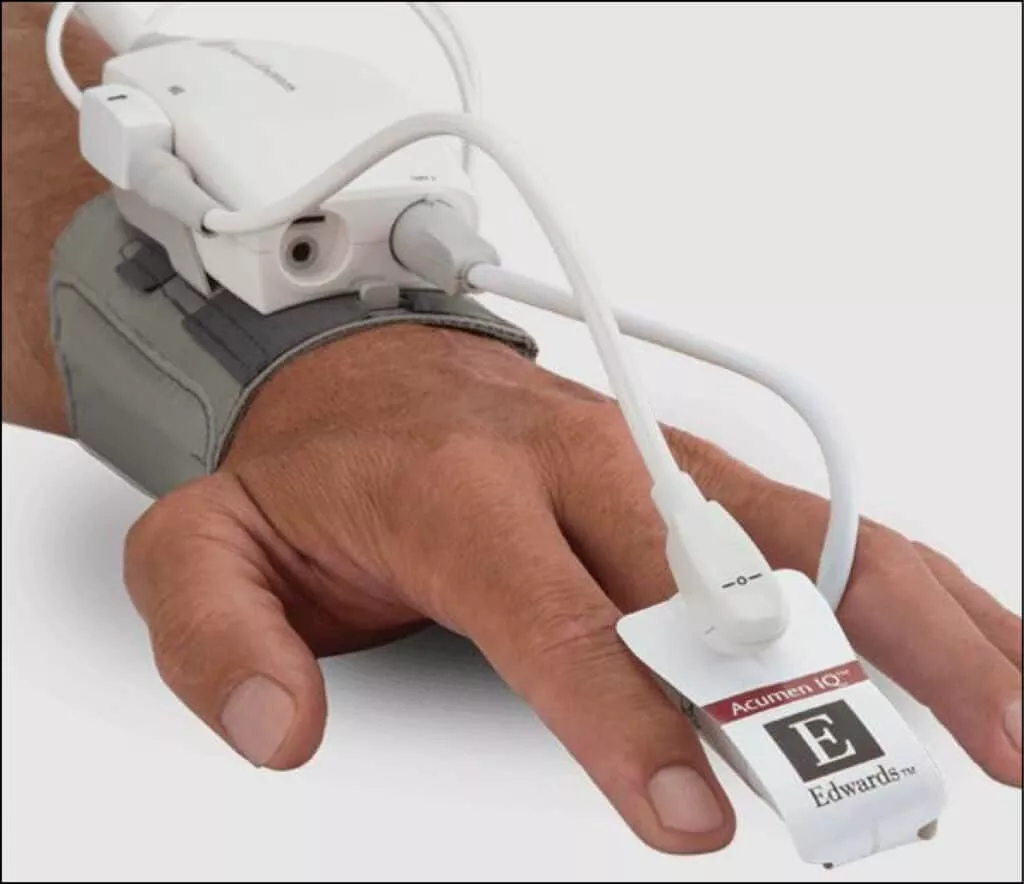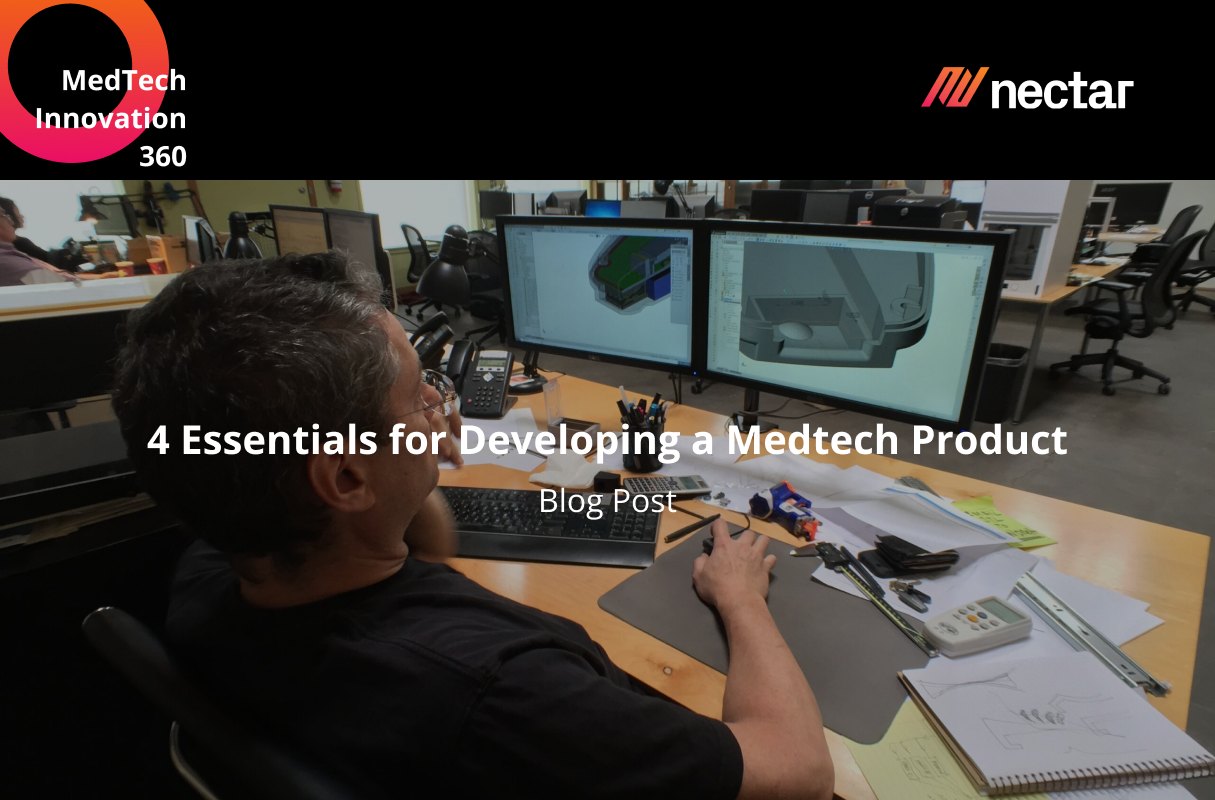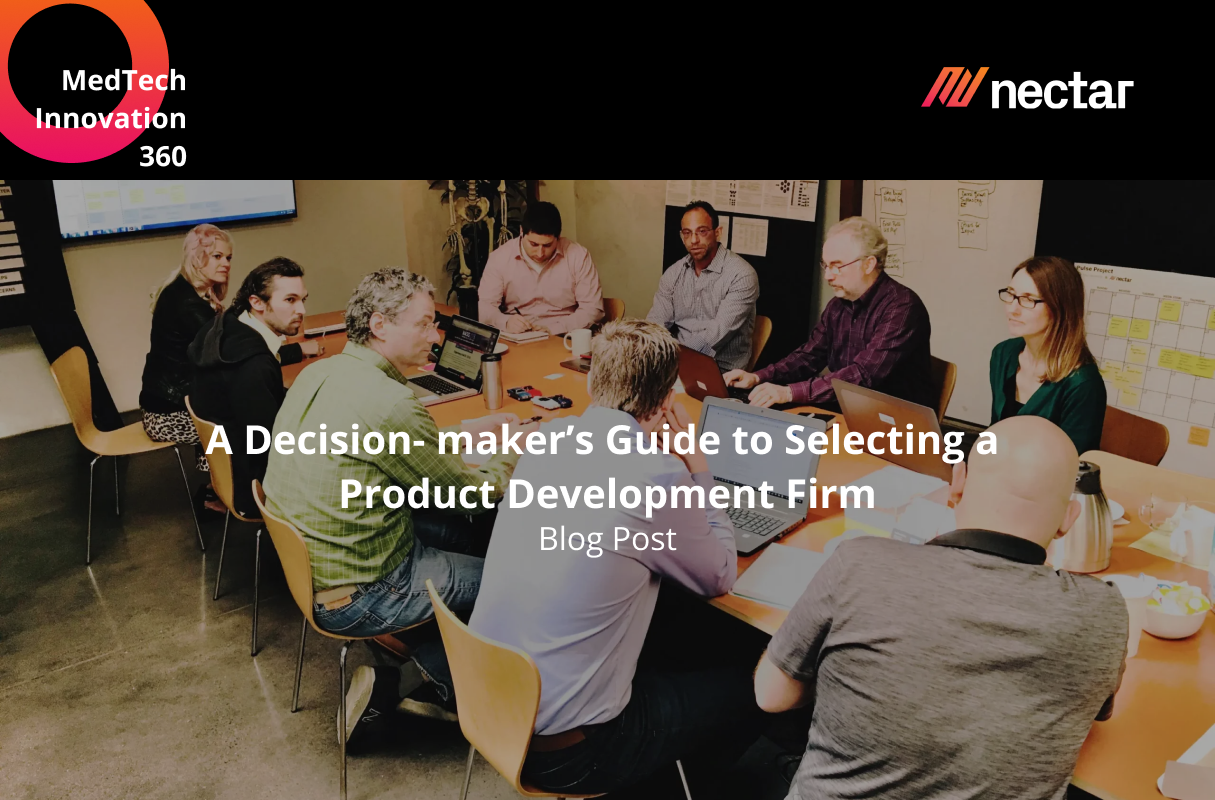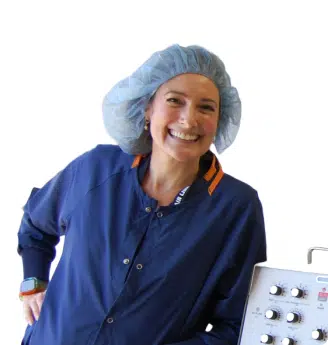At the Greenlight Guru 2023 State of Medical Device True Quality Summit Series, Nectar’s Principal Engineer, Aaron Gifford, took the stage to share his expertise on “The ROI of Shifting Mindset From Compliance to Quality”. As a seasoned professional in the industry, Aaron brought valuable insights to the conversation, emphasizing the importance of quality in medical device development.
The annual summit is a platform for the medical device community to come together and explore the latest trends, best practices, and technologies in the field. The focus on quality was a central theme of the event, as the industry strives to create better and safer products for patients. With the release of Greenlight Guru’s 2023 MedTech Industry Benchmark Report, attendees had the opportunity to gain a comprehensive understanding of the strategies and tactics being used to promote quality in medical device development.
As a key participant in the discussion, Aaron shed light on the benefits of making the shift from compliance to quality, and the positive impact it can have on both the development process and the end product. He highlighted the need for companies to focus on creating products that are not just compliant but truly meet the needs of patients and healthcare providers. Aaron’s talk was a testament to the value of prioritizing quality in medical device development and the positive impact it can have on the industry as a whole. At Nectar, we believe in spreading our knowledge and insights. That’s why we want to share some of the key questions asked during Aaron’s talk and the wisdom he imparted in his responses
Q: What are the differences between compliance and quality in the Medtech industry?
A: Compliance in the medical device industry is all about adhering to the necessary laws, regulations, and standards. However, quality goes beyond that and focuses on delivering a product that truly meets the needs of the target market. While compliance is focused on meeting the minimum requirements to get a product to market, quality is about striving for excellence and delivering the best product possible. This shift in mindset from compliance to quality can have a significant impact on the ROI of a medical device. Products that are designed with the market in mind are more likely to be successful than those that simply meet minimum standards. By embracing a quality-focused approach, medical device manufacturers and suppliers can create products that truly meet the needs of their customers and drive success in the market. Think about the most common activity you do – driving to and from work. What do you remember: the 100 times your car started without issue, or the one time it didn’t? This same principle applies to compliance and quality in the medical device industry. Compliance may meet a minimum requirement of 99%, but in today’s world, that’s not enough. Customers expect and deserve 99.99% reliability. Quality goes beyond compliance and touches every aspect of product development, from understanding user needs to design, manufacturing, and tracking. A holistic focus on quality, rather than just compliance, leads to better products that meet the needs and expectations of patients. Compliance is just one aspect of a comprehensive quality system, and a focus on quality must permeate the entire organization, from top to bottom
Q: In a survey that asked “how confident are you that your current quality system can handle your company’s projected growth over the next 12 months?”, ⅓ of respondents to this said they planned to upgrade their QMS. What can this upgrade look like for companies wishing to upgrade their quality management systems?
A: We have been continuously working on improving our quality system and making it more efficient. We aim to reduce bureaucracy as much as possible and not have hundreds of people involved in signing everything. We have seen many quality systems become cumbersome and slow down processes, which is not what they are meant to do. Rather, a quality system should be a tool that helps ensure documentation is in place and the job is done correctly. Our quality system has been updated numerous times over the past few years as we have grown, developed and launched products. The goal is to have a quality system that matches the way we actually do our work, so that it is never out of compliance. We believe in building upon what we have and continuously improving, which involves periodically reviewing and updating processes as needed. We use in-house training to teach our SOPs and work instructions, but if the training required is more specialized, we will hire an expert or attend seminars. For instance, some of our employees attend training from organizations such as ASQ. I have a background in engineering and management, with a focus on regulatory QA, which allows me to understand different perspectives. The goal of a company is to release a product that is both safe, functional, and appealing to the market. The challenge lies in balancing these objectives with the various regulatory requirements, such as the FDA, 1345, and others, which can feel overwhelming. However, quality is more than just compliance, it’s about meeting the needs of the market and using continuous improvement to guide the entire product life cycle, from design to sales. This approach leads to a successful product and company, resulting in a positive return on investment
Q: If someone approached you with the issue that “mindset” is not working in their company, what would be your one piece of advice to help overcome this challenge?
A: My advice would be that creating a positive mindset starts from the top, but it’s not only the leadership’s responsibility. Every individual in the company plays a role in shaping the overall mindset and culture. It’s important for each person to take ownership of their own behavior and attitudes, as these can have a ripple effect on those around them. I’ve seen firsthand the impact that a change in leadership can have on a company’s culture. Currently, I am working on determining the right amount of time for employee training. The company is struggling with the issue of how long training should be given to employees, with some pushing off deadlines. This highlights the importance of setting clear expectations and deadlines in shaping a productive mindset within the company.
Aaron Gifford’s contribution to the Greenlight Guru 2023 State of Medical Device True Quality Summit Series highlights the importance of quality in medical device development. His insights and experience serve as a valuable resource for professionals in the industry looking to improve their approach to product development. If you missed the opportunity to attend the talk in person, you can now listen to the recording by following this link. Don’t miss out on the chance to hear from a leading expert in the field and gain a deeper understanding of the ROI of shifting your mindset from compliance to quality. If you’d like to get in touch further, you can always schedule a consultation with us.

























